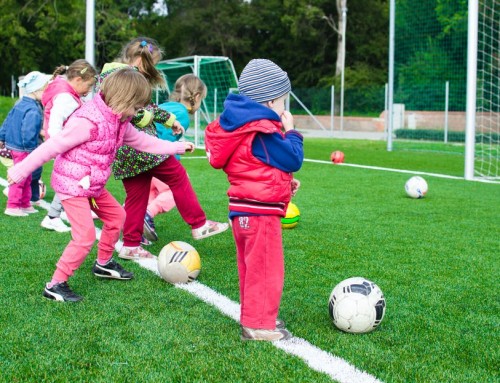Every parent wants their child to grow up healthy, happy, and well-adjusted.
Outside of these basic necessities, however, many parents aim to raise strong, independent, and confident offspring. Many parents want to see their children succeed in the world, to strike out, make impacts, and live up to the potential that they’ve worked so hard to create.
Watching a child can grow can be a fascinating and transformative experience, but it is also never as clear-cut as one would expect or hope. Children can be hard to understand, and their personalities develop in ways one might never expect. Parents want to see their kids as a natural born leader, but it can be hard to parse exactly what traits are required in a child to fit this mold.
If you’re curious about your child’s potential to be a natural leader, read on. We’ll discuss what traits to look for.
1. They Are On Top Of Things
Very early on in a child’s life, you should be able to begin to tell what kind of learner they will be.
Certain children will require constant reminders when it comes to accomplishing their daily tasks, chores, and homework. Others will understand their tasks and begin to outline themselves methods for getting through everything.
If your child requires few reminders to accomplish their daily tasks, it’s a strong indicator that they might have what it takes to be a strong leader. This task-oriented mindset and ability to self-organize are indicative of a strong ability to accomplish goals later in life.
And if your child is able to easily organize and accomplish their own goals, it’s an easy step for them to begin to lead others down the same path. According to behavioral studies from Duke University, self-sufficiency and responsibility can show potential for strong leadership from a child.
So you shouldn’t fret if your child doesn’t want to approach tasks in the exact manner or timetable that you want. The independence they’re exhibiting is actually a hugely positive trait indicative of a natural born leader.
2. They Exhibit Empathy
There is a misconception that children who are sensitive, soft-spoken, or even shy may not make good leaders later in life. This is actually not true at all, and the real situation may be quite the opposite.
Several behavioral studies have shown that a strong sense of empathy is a common trait among leaders from a variety of backgrounds. Understanding and being able to relate to others emotionally is an important tool in working with people and leading them towards a common goal.
Many behavioral psychologists refer to something known as an Emotional I.Q., which is different than one’s I.Q. in the traditional sense. Emotional intelligence is usually defined as the ability to identify and manage your own emotions and the emotions of others.
It’s an important trait to have in a natural leader, as leadership inherently means understanding the feelings, strengths, and weaknesses of many different people. If your child seems to be thinking of other’s feelings or working to cheer them up or calm them down, they might be a natural born leader. If they have trouble empathizing with others, it might be something worth talking to a therapist about.
3. They’re Team Players
The classical archetype of a natural born leader in film and television is one who stands above the crowd, frequently shouting orders and taking the glory.
In reality, a true and strong leader is much more likely to be a strong team player. True leaders are good listeners and can identify and appreciate the strengths of those around them. A good leader can employ other’s strengths and skills, even ones they themselves don’t possess, towards a common goal.
Watch your child as they play sports or organize playground activities. Are they self-focused, or are they working to include and encourage all players? If the latter, they might already be developing the skills that a leader requires.
4. They’re Not Afraid To Take Risks
Being a leader involves listening and consideration, but it can also require fast action and swift courage. Kids who aren’t afraid to go for it in social or academic situations show the flair for risk-taking and quick action that good leaders inherently have. That’s why many natural leaders participate in extracurricular activities and honor societies, which you can learn more about and view here.
If your child is constantly putting off decisions and side-stepping new situations, they might not be developing natural leadership skills. This risk-taking attitude doesn’t mean they have to be brash and foolish– learning from failures and developing a method to weigh pros and cons can be an essential skill for a future leader to learn.
5. They’re Easily Adaptable
Not every situation is the same, and having strengths in one area is not always indicative to always being able to be on the top of situations.
According to behavioral psychologists at Purdue University, children who are natural born leaders can change their behavior to match the tasks and group dynamics in front of them at the time. Leadership involves coordinating often disparate and separated groups towards a common goal.
Looking out for this trait in your child means a keen eye. Check in on their social situations– are they able to make friends and fit in with different cliques and groups at school? Do they have a wide range of interests? This adaptable behavior can go a long way toward predicting a future in leadership.
Is Your Child A Natural Born Leader?
All parents hope that their children exhibit strong leadership and problem-solving traits. Not all children will be a natural born leader, and you should not be hard on your child for not exhibiting some of the traits above. Happiness and self-love are the most important traits for a child to have.
But if they are naturally exhibiting some of the traits above, you may have a future leader on your hands. Want more advice and tips for your family and home? Check out our blog for more.











